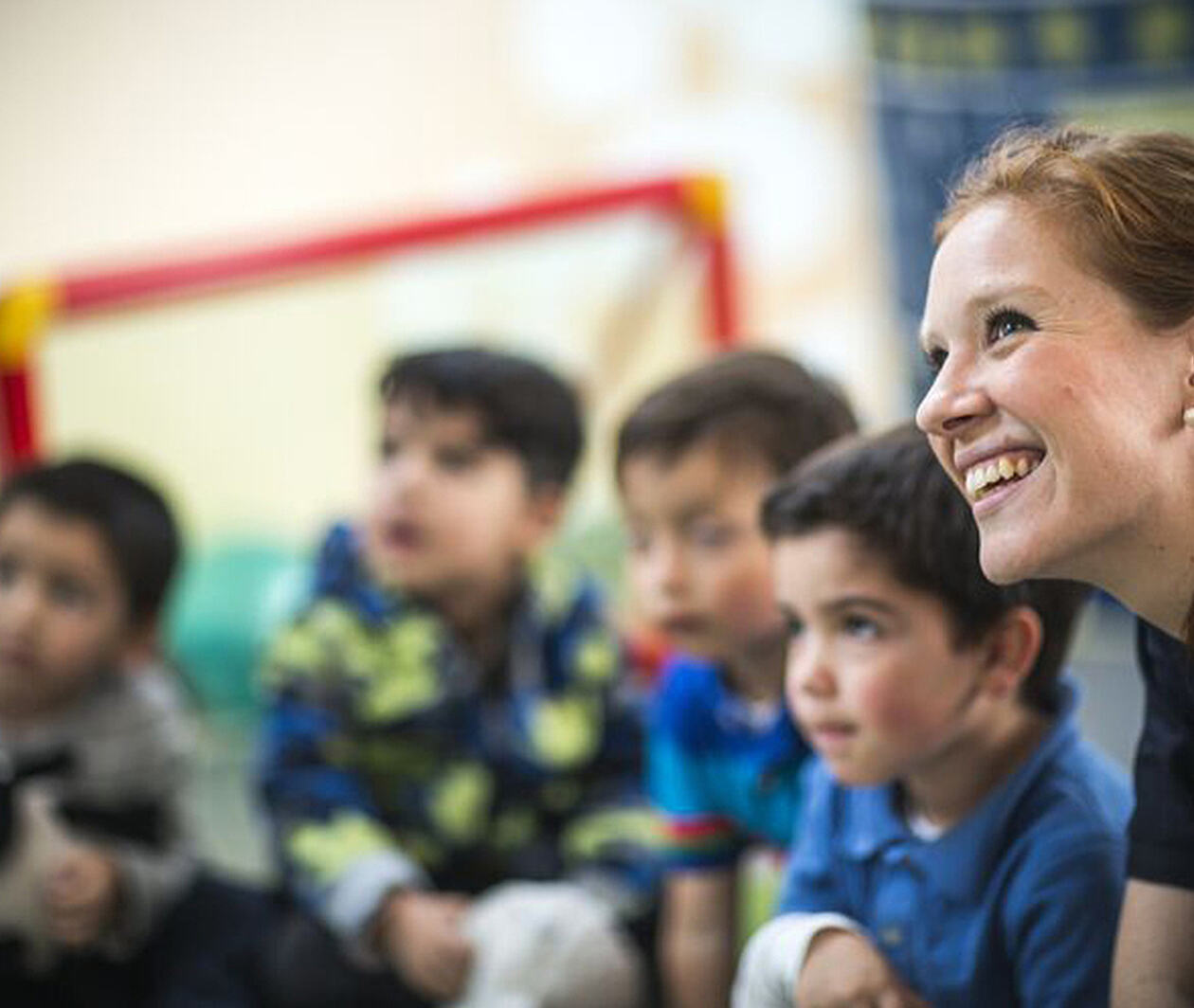Understand how to create enabling environments to nurture children’s wellbeing and support their language development.

Duration
2 weeksWeekly study
2 hours
English in Early Childhood: How Happy Children Learn
Learn how to create an enabling environment to nurture children’s wellbeing.
This two-week course will explore why happy children learn better and the practical things you can do to encourage this. You’ll learn how to provide the best conditions for learning and how to give the right amount of support.
The course has been produced by the British Council, providers of high-quality English language courses in over 100 countries.
Creating enabling environments and positive relationships
You’ll explore ways to build positive relationships with young children, and their families and how this can help with their language development.
You’ll also understand how to create the right environment to encourage learning and development.
Learn how to nurture a child’s wellbeing
Once you have understood what an enabling environment is, you’ll understand how this leads to a better learning experience.
You’ll explore how watching and observing children helps us to get to know them, and what they need in order to help them with their development, as well as how to build trust to support them through their learning experience.
Observe children’s progress
Learn what to expect from young children learning English as an additional language, and how to measure progress in a meaningful way.
Understand how observation of children helps gain an understanding of what the next steps in each child’s learning and development might be, and how to help move learning forward.
What topics will you cover?
- Learning and wellbeing - fostering positive relationships that encourage language development.
- Providing the right conditions for learning - the importance of an enabling environment.
- The unique child - putting the individual at the heart of learning.
- Observation, assessment and planning - providing the right amount of support and challenge to help children move forward in their learning and language development.
Learning on this course
On every step of the course you can meet other learners, share your ideas and join in with active discussions in the comments.
What will you achieve?
By the end of the course, you‘ll be able to...
- Demonstrate the connection between learning and a child’s well-being.
- Identify ways to support and challenge children, and measure their progress.
- Reflect on how to build trust with families and to respect diversity.
Who is the course for?
This course is for parents of young children, English teachers of young children and early years practitioners who want to understand and assist young children in learning English as an additional language. It will suit you if you have an interest in early childhood development.
Who developed the course?
British Council
The British Council builds connections, understanding and trust between people in the UK and other countries through arts and culture, education and the English language.
We work on the ground in more than 100 countries. In 2019-20 we connected with 80 million people directly and with 791 million people overall, including online and through our broadcasts and publications.
Learning on FutureLearn
Your learning, your rules
- Courses are split into weeks, activities, and steps to help you keep track of your learning
- Learn through a mix of bite-sized videos, long- and short-form articles, audio, and practical activities
- Stay motivated by using the Progress page to keep track of your step completion and assessment scores
Join a global classroom
- Experience the power of social learning, and get inspired by an international network of learners
- Share ideas with your peers and course educators on every step of the course
- Join the conversation by reading, @ing, liking, bookmarking, and replying to comments from others
Map your progress
- As you work through the course, use notifications and the Progress page to guide your learning
- Whenever you’re ready, mark each step as complete, you’re in control
- Complete 90% of course steps and all of the assessments to earn your certificate
Want to know more about learning on FutureLearn? Using FutureLearn
Learner reviews
Learner reviews cannot be loaded due to your cookie settings. Please and refresh the page to view this content.
Get a taste of this course
Find out what this course is like by previewing some of the course steps before you join:
